Chameleon People - [13]
I had to admit that I actually could not imagine the rest. She sighed with forced exasperation.
‘Well, when Vera turned twenty-three, she met a man with whom she fell in love and is now in a rather disagreeable relationship. He’s a very liberal Dutchman who was studying in Norway, although he did not do as well as her. He has an almost obsessive ambition to start an art gallery in Amsterdam where he can sell his own paintings and those of his bohemian friends. He wants a million or four in start capital, and my father was not, of course, willing to lend it him. The Dutchman is a bit suspect and Vera is terribly inexperienced and naive when it comes to love. It could end very badly. So, it would suit her very well to get some money right now.’
‘And you? What about yourself?’
‘I struggled more with books than Vera, so I stopped studying. I started to work in politics and in a shop when I was twenty-one. But at the moment I can’t work because our society doesn’t offer childcare to single mothers who want to work, and I had to pay my former husband a small fortune to get him out of the house. Father simply refused to pay for his only grandchild to lose one of her parents. He also felt he could not give me any of my inheritance without doing the same for Vera, and he certainly did not want to do that. So my only option was a bank loan which I’m paying interest on. I can get by, but a few million wouldn’t go amiss right now.’
‘And what about Johan’s family situation?’
‘Johan is more of a businessman than a charmer. He has always been well off, but never any good at going out and spending his money. Since he turned thirty, he has made it very obvious that he wants a family, but any attempts to get one have not ended particularly well. Although, we have not heard mention of it for a couple of years now. He is still unmarried and childless, but I think he might have something on the go at the moment. I have always had a good relationship with him – even though we are very different and he is rather boring – and last time we met at our parents’, he told me that he might have a good deal in the offing, as he put it. I realized there was something he did not particularly want to talk about, so now I am waiting with bated breath to hear what the problem is this time. It’s just as interesting every time.’
She stretched unabashed in the chair again – and managed to surprise me once more.
‘So, how little have the unsociable people in my family actually told you? Don’t tell me they said nothing about the murder mystery from Father’s youth?’
At first I thought she might be joking. Then we exchanged looks and immediately became serious again.
I said that no one had mentioned any earlier murder mystery in Per Johan Fredriksen’s life. I hastily added that I should, of course, be told about it now that he himself had been killed.
Ane Line Fredriksen sighed and rolled her eyes, then lay her arms heavily on the desk as she leaned forwards.
She leaned so far over that I could see the top of her unusually large breasts. However, the story that she told was so sensational that it quickly took all of my attention.
VIII
‘When I was eleven and then again when I was sixteen, I noticed a certain tension at home both before and after my parents went out for a mysterious meal. It was just a few weeks after the second meal that I first heard the story about the murder in 1932. It was Father who started to tell me about it, one Saturday when he had had a few too many drinks. The case had always plagued him and he had been thinking about it even more in recent years. He said he would happily give ten million kroner to know what had happened. It was obviously a story that he and Mother both knew very well, but that they had never told us children. My brother and sister had never heard about it either until I told them.’
There was a short, dramatic pause. I waved for her to continue. She flashed me a coquettish smile and then carried on eagerly.
‘Father was the MP for Vestfold. He was born there and was heir to a large estate with half a forest. There were big class differences in Vestfold back then. Our Labour prime minister was born around the same time only a couple of miles away, but grew up in poverty. Anyway, in March 1932, Father and five other friends from Vestfold went to Oslo for the spring break. They all came from very wealthy families at a time when there was widespread poverty and need. They had each booked a room at a hotel out by Ullern, which was one of the most desirable parts of town, and presumed to be a safe area. And yet, something very dramatic happened there. On their second evening at the hotel, the youngest, a twenty-one-year-old woman, called Eva Bjølhaugen, was found dead in her room. She was found lying on the sofa and there was no visible sign of violence. She suffered from epilepsy and it was assumed that she died as a result of a seizure. But there was no autopsy. Father was not convinced that that was what had happened at all. There were several things he felt did not fit.’
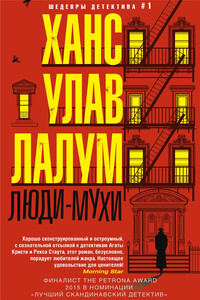
Убит бывший лидер норвежского Сопротивления и бывший член кабинета министров Харальд Олесен. Его тело обнаружено в запертой квартире, следов взлома нет, орудие убийства отсутствует. На звук выстрела к двери Олесена сбежались все соседи, но никого не увидели. Инспектор уголовного розыска Колбьёрн Кристиансен считает, что убийство, скорее всего, совершил кто-то из них. Более того, он полагает, что их показания лживы.
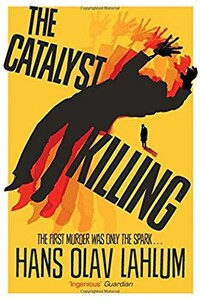
The third mystery in the hugely compelling, bestselling international crime series from Norway's answer to Agatha Christie, Hans Olav Lahlum, The Catalyst Killing will have you guessing to the final clue. The first murder was only the spark… 1970: Inspector Kolbjorn Kristiansen, known as K2, witnesses a young woman desperately trying to board a train only to have the doors close before her face. The next time he sees her, she is dead… As K2 investigates, with the help of his precocious young assistant Patricia, he discovers that the story behind Marie Morgenstierne's murder really began two years ago, when a group of politically active young people set out on a walking tour in the mountains.
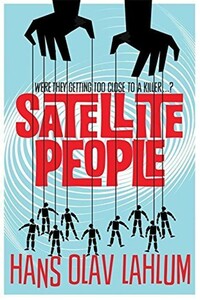
A gripping, evocative, and ingenious mystery which pays homage to Agatha Christie, Satellite People is the second Norwegian mystery in Hans Olav Lahlum's series. Oslo, 1969: When a wealthy man collapses and dies during a dinner party, Norwegian Police Inspector Kolbjorn Kristiansen, known as K2, is left shaken. For the victim, Magdalon Schelderup, a multimillionaire businessman and former resistance fighter, had contacted him only the day before, fearing for his life. It soon becomes clear that every one of Schelderup's 10 dinner guests is a suspect in the case.
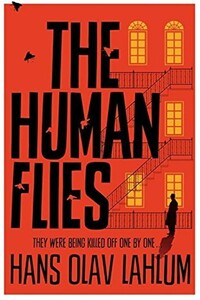
Oslo, 1968: ambitious young detective Inspector Kolbjorn Kristiansen is called to an apartment block, where a man has been found murdered. The victim, Harald Olesen, was a legendary hero of the Resistance during the Nazi occupation, and at first it is difficult to imagine who could have wanted him dead. But as Detective Inspector Kolbjorn Kristiansen (known as K2) begins to investigate, it seems clear that the murderer could only be one of Olesen's fellow tenants in the building. Soon, with the help of Patricia – a brilliant young woman confined to a wheelchair following a terrible accident – K2 will begin to untangle the web of lies surrounding Olesen's neighbors; each of whom, it seems, had their own reasons for wanting Olesen dead.
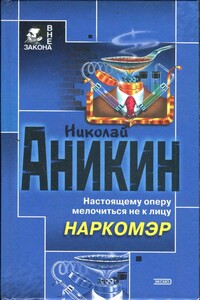
Тупик. Стена. Старый кирпич, обрывки паутины. А присмотреться — вроде следы вокруг. Может, отхожее место здесь, в глухом углу? Так нет, все чисто. Кто же сюда наведывается и зачем? И что охраняет тут охрана? Да вот эту стену и охраняет. Она, как выяснилось, с секретом: время от времени отъезжает в сторону. За ней цех. А в цеху производят под видом лекарства дурь. Полковник Кожемякин все это выведал. Но надо проникнуть внутрь и схватить за руку отравителей, наживающихся на здоровье собственного народа. А это будет потруднее…
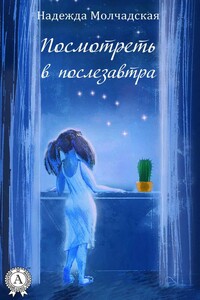
«Посмотреть в послезавтра» – остросюжетный роман-триллер Надежды Молчадской, главная изюминка которого – атмосфера таинственности и нарастающая интрига.Девушка по имени Венера впадает в кому при загадочных обстоятельствах. Спецслужбы переправляют ее из закрытого городка Нигдельск в Москву в спецклинику, где известный ученый пытается понять, что явилось причиной ее состояния. Его исследования приводят к неожиданным результатам: он обнаруживает, что их связывает тайна из его прошлого.
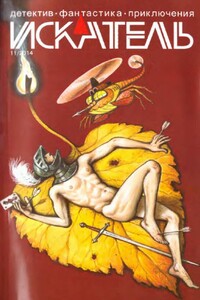
«ИСКАТЕЛЬ» — советский и российский литературный альманах. Издаётся с 1961 года. Публикует фантастические, приключенческие, детективные, военно-патриотические произведения, научно-популярные очерки и статьи. В 1961–1996 годах — литературное приложение к журналу «Вокруг света», с 1996 года — независимое издание.В 1961–1996 годах выходил шесть раз в год, в 1997–2002 годах — ежемесячно; с 2003 года выходит непериодически.Содержание:Анатолий Королев ПОЛИЦЕЙСКИЙ (повесть)Олег Быстров УКРАДИ МОЮ ЖИЗНЬ (окончание) (повесть)Владимир Лебедев ГОСТИ ИЗ НИОТКУДА.
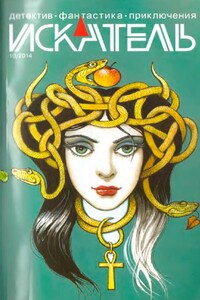
«ИСКАТЕЛЬ» — советский и российский литературный альманах. Издается с 1961 года. Публикует фантастические, приключенческие, детективные, военно-патриотические произведения, научно-популярные очерки и статьи. В 1961–1996 годах — литературное приложение к журналу «Вокруг света», с 1996 года — независимое издание.В 1961–1996 годах выходил шесть раз в год, в 1997–2002 годах — ежемесячно; с 2003 года выходит непериодически.Содержание:Олег Быстров УКРАДИ МОЮ ЖИЗНЬ (повесть);Петр Любестовский КЛЕТКА ДЛЯ НУТРИИ (повесть)
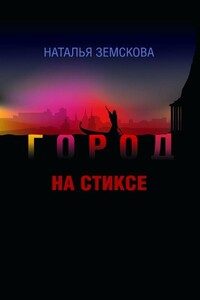
Наталья Земскова — журналист, театральный критик. В 2010 г. в издательстве «Астрель» (Санкт-Петербург) вышел её роман «Детородный возраст», который выдержал несколько переизданий. Остросюжетный роман «Город на Стиксе» — вторая книга писательницы. Молодая героиня, мечтает выйти замуж и уехать из забитого новостройками областного центра. Но вот у неё на глазах оживают тайны и легенды большого губернского города в центре России, судьбы талантливых людей, живущих рядом с нею. Роман «Город на Стиксе» — о выборе художника — провинция или столица? О том, чем рано или поздно приходится расплачиваться современному человеку, не верящему ни в Бога, ни в черта, а только в свой дар — за каждый неверный шаг.
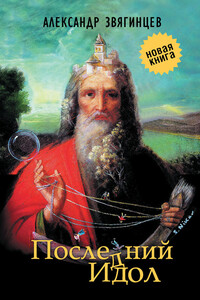
В сборник «Последний идол» вошли произведения Александра Звягинцева разных лет и разных жанров. Они объединены общей темой исторической памяти и личной ответственности человека в схватке со злом, которое порой предстает в самых неожиданных обличиях. Публикуются рассказы из циклов о делах следователей Багринцева и Северина, прокуроров Ольгина и Шип — уже известных читателям по сборнику Звягинцева «Кто-то из вас должен умереть!» (2012). Впервые увидит свет пьеса «Последний идол», а также цикл очерков писателя о событиях вокруг значительных фигур общественной и политической жизни России XIX–XX веков — от Петра Столыпина до Солженицына, от Александра Керенского до Льва Шейнина.